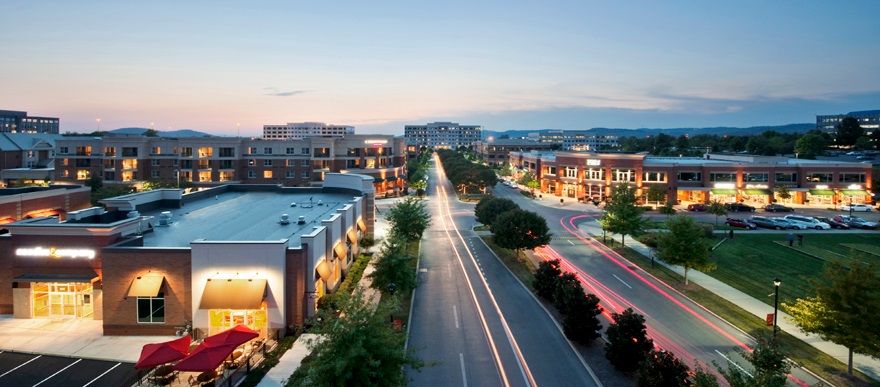
The Nashville Business Journal – The United States was the second most popular international tourism destination in 2015. More than 77.5 million people saved up to visit the country you call home.
Where do tourists go? TripAdvisor’s list is topped by NYC, Las Vegas, Orlando, Chicago and San Francisco. So what’s the big draw? Perhaps you should become a tourist for a weekend and find out.
Here’s a thought before we start: This sounds like fun, yet it could be great for business! These tourists might walk into your business. Being able to ask “How do you like our city?” and “What have you seen so far?” starts the bonding process. People buy from people they like.
How to be a tourist
Start by putting yourself in their shoes. What would you do first?
Stay at a local hotel
Pick a big one in the center of town. Weekend hotel rates are often surprisingly low because all the business travelers checked out by Friday morning. The beds are comfy. You can walk to most attractions.
Lesson: You’ve learned how local hotels treat guests. Do they make the feel welcome? Are they indifferent? This influences the tourist’s mood.
Bonding moment: Your tourist conversation includes “Where are you staying?” as an early question. You can remark on the convenience to the major sites.
Where’s the ATM?
Everyone needs walking-around money. The big banks nearby are the logical choices. Which ones are closest?
Lesson: Most people know bank debit cards work overseas. They won’t intuitively know where to find ATMs.
Bonding moment: They are leaving your store and mention they are short of cash. You let them know there’s an ATM around the corner.
Buy a guidebook
Tourists often know more about the town’s famous sites than locals. Find the top five sites. What are the famous museums? When was the last time you visited? What historic sites does the book suggest? Do they recommend walking tours?
Lesson: We often take for granted the sites telling the story of why our city is special. This is a refresher.
Bonding moment:“What have you seen?” That’s your lead-in for mentioning the top five sites. What makes them important?
Visit the top five sites
This might take the better part of two days. Pay the admission fee. Try to see everything the museum/monument/observation tower has to offer. Get the audio headset or access the Smartphone app providing the guided tour.
Lesson: They will have seen a couple or have them “on their list.” You have something in common to talk about.
Bonding moment:“The art museum is great! They have this big show on right now…”
The glossy booklet
Pick up that free tourist guide available in the lobby. Often it features a map along with ads and reviews for local restaurants. Read it cover to cover.
Lesson: If you had a night for a special dinner, would you choose one of the featured restaurants? Do you have someplace better in mind?
Bonding moment:“You asked about a steakhouse. Let me tell you where the locals go…”
Buy drinks in the hotel bar
It’s part of the tourist experience. Do they put out decent munchies or is buying them off the appetizer list a requirement? Do they have a Happy Hour?
Lesson:“Eighteen dollars for a martini? Are they serious?”
Bonding Moment:“There’s a wonderful sports bar just around the corner from your hotel. They have a great Happy Hour…”
(7) Check out the breakfast menu – Big hotels offer breakfast for business travelers, often at extortionate prices. This pricing model doesn’t vanish when they check out. Find out what will greet the hungry tourist in the morning.
Lesson:“Fifteen dollars for breakfast? Coffee is extra?” The must be a McDonalds nearby.
Bonding moment:“Since you asked about breakfast, here’s a tip. Hotel breakfasts downtown are usually priced for business travelers. Try the McDonalds/Starbucks/Burger King two blocks away instead.”
Attend the theater
Tourists do it all the time. Locals often give it a miss. Tickets are often expensive. Do some online research to find the best deals. Does the city run a half-price ticket store for same-day tickets? See a play.
Lesson: You’ve had the experience. You can relate.
Bonding moment:“If you are OK with going today, there’s this great half-price theater ticket place…”
Ask for directions
Surprisingly, you will need them, especially at those touristy sites. Where’s the entrance? How can I find the subway or bus stop? Are they courteous?
Lesson: Ask a police officer. You will learn how they interact with tourists.
Bonding moment:“People around here are actually very welcoming and willing to help with things like directions…”
Great hotel lobbies
They are likely not staying at the landmark hotel in town. It’s got great ambience and is likely steeped in history. Check it out.
Lesson: Now you know where the famous visitors stayed.
Bonding moment: “ When you are downtown, you’ve got to stop in the Hotel Excessive…”
Take mass transit
You might drive to work, but tourists get around by bus or subway. FYI: British people may be an exception as they seem to be enthusiastic walkers.
Lesson: Learn how you buy a fare. Smartcard? Can you pay in cash on the bus? Do they offer an all day, flat-rate pass?
Bonding moment:“The easiest way to get around is by mass transit. They offer this one-day pass…”
Take a taxi
It’s part of the experience. Are they easy to get? Do they take you via the most direct route? Would Uber or Lyft be a better choice?
Lesson: You learn the practical details.
Bonding moment:“If it’s raining, you are far better off asking your hotel to get you a cab.”
What’s the payoff?
A short bonding conversation can pay great dividends. They have money to spend. They want to bring back remembrances of their trip. U.S. prices are often cheaper. They buy famous brands. They tell their friends to visit your store.
You had a great weekend, too!
